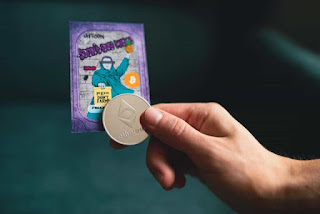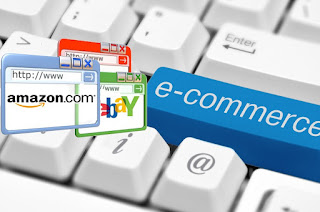A bank is a financial institution licensed by a regulating body to receive deposits and lend surplus money to borrowers, and upon demand, pay the depositor. A bank allows the depositor to open an account, make a withdrawal, pay third parties, and use a debit or credit card, among other services. Banks have different products and services like personal and business banking products for their customers. Personal banking is another name for domestic or retail banking, which involves the bank dealing with you directly or personally. While for Corporate or business banking, the bank deals with a corporate body or an incorporated company.
In Nigeria, most of the banks offer a mix of these services, and if you own a small business, your concern is how to get a loan quickly. But for the regular saver, you want a secure bank. The Nigeria Deposit Insurance Corporation secures your deposit of up to N500,000 in all commercial banks in Nigeria in case CBN closes any of them. To help you filter the best out of the number of banks, we will list ten of the best banks in Nigeria for personal and business banking to enable you to make an informed choice. Let us start with some examples of both services.
What are examples of personal banking?
Examples of personal banking are savings account, certificate of deposit, credit, and debit cards, financing a car or a house, and remitting foreign currency. There is also private banking service (for high net worth individuals), insurance, stock brokerage, and wealth management, which the bank will sell to you using its subsidiary company. Extra service includes online banking.
What are the examples of business banking?
Corporate banking or business banking services include Loans and advances, treasury services, equipment leasing, trade finance, and small-medium enterprises (S.M.E.) loans, online banking, P.O.S., and more.
After showing you some examples of personal and business banking, let us go straight to the list and examine the best banks right away.
The best banks in Nigeria
Here are the best banks in Nigeria for personal and business banking:
1. Guaranty Trust Bank Plc
Guaranty Trust Bank Plc (GTBank) is a limited liability company incorporated to carry on the banking business in 1990 and began operating in February 1991. The bank listed its stocks in the Nigerian stock exchange in September 1996.
Through the years, due to sound management, its asset base is now more than 3 trillion naira. The bank has a subsidiary office in the United Kingdom and branches in some African countries like Ghana and Uganda.
GTBank offers excellent personal and business banking to customers using its professional staff. GTbank’s personal banking service includes opening savings and current accounts, nonresident Nigerian service, and private banking, online banking, and A.T.M and P.O.S.
While the business banking gives you access to a GT business account, corporate and commercial banking, S.M.E. and loans and advances, and more.
2. First Bank of Nigeria
First bank is one of the best banks in Nigeria for personal and business banking. Here is why. First bank of Nigeria is true to its brand name and is genuinely the first when it comes to personal banking services.
The bank, which started in 1894, now has close to 900 branches in Nigeria, across ten African countries and the U.K. First bank has nearly ten thousand employees, and its revenues have continued to grow.
To prove how much the bank has been able to serve its personal banking clients, the bank won “The Asian Banker International Excellence” award for the best personal banking brand five times in a row.
Its personal banking solutions include loans and mortgage, bank cards, payment solutions, online banking and A.T.M and P.O.S and diaspora banking, money transfer, and fixed deposit.
Also, the bank serves its corporate banking customers well, and its loan portfolio continues to increase just like its deposit base. Rest assured that First bank will give you the best of both services. Its business banking products include Account, S.M.E. connect, loans, e-solutions, payment solutions, Agric financing, and mortgages.
3. Zenith Bank P.L.C.
Zenith Bank P.L.C. is a leading Conglomerate and provides financial services across the globe using cutting edge technology and leads while the other banks follow.
The bank was launched in May 1990 and started operating in July of the same year with a commercial bank license.
In 2014, it transformed into a Public liability company (P.L.C). Also, to meet demands for its services, it has 500 branches in Nigeria and subsidiary offices in the U.K, Ghana, South Africa, and more.
Zenith offers numerous customers customized banking services, which include S.M.E. banking, Personal banking, and Corporate banking, investment and loans, bank account, asset management solutions, Online banking, A.T.M, and P.O.S.No wonder it is now among the largest banks in Africa. Its head office is at Zenith Heights, Plot 83, Ajose Adeogun Street, Victoria Island, Lagos, Lagos State, Nigeria.
4. Stanbic I.B.T.C. Bank
I.B.T.C. chattered bank started in 1989 and merged with Stanbic Bank Group in 2007. It is now a part of the Standard Bank Group with the Head office in Johannesburg, South Africa.
The bank provides excellent banking services in well over 180 branches locally with 560 Physical ATMs. Its professional staff is up to 3,000 and keeps increasing to match up with your demand for excellent services.
Its foreign remittances service is top-notch. If you are Nigerian living abroad, you may open a nonresident Nigerian bank account with the bank as the cost of transactions is low, and it is easy to monitor your account from anywhere you live abroad.
The bank’s personal and business banking service is first class, with an unbeatable range of services that include financial advisory services, loans, savings, investments, debit and credit cards, mortgages, pensions, and Stockbroking. Its Head Office is The I.B.T.C Place Walter Carrington Crescent Victoria Island Lagos.
5. Standard Chartered Bank Nigeria
Another one of the best banks in Nigeria for personal and business banking is Standard Chartered Bank, Nigeria. Its head office is in London, and its branches worldwide are about 1,200. The bank boasts of over 150 years of banking experience.
Standard Chartered Bank Nigeria started operating on 15 September 1999 and has 22 branches with A.T.M’s and more than 900 employees as of 2013.
The Bank in Nigeria provides one of the best business banking services with an efficient, secure, and easy to use free online banking platform, plus a fair exchange rate service.
That said, its retail banking services are equally responsive to the demands of the customers. Its products include personal banking, priority banking, and business accounts for its retail clients.
While its corporate and institutional services include transaction banking, priority banking, and small and medium enterprises(S.M.E.). Its local head office is at 142 Ahmadu Bello Way, Victoria Island, Lagos.
6. Sterling Bank Plc
When this bank began in 1960, it was Nigeria’s first Investment bank called Nigeria Acceptances Limited (N.A.L.).
Sterling Bank became a complete commercial bank when N.A.L. merged with four other banks in the 2006 bank consolidation era. With that merger, Sterling bank was born and ready to improve stakeholders’ value.
Sterling bank has repositioned itself to deliver both personal banking and business banking services plus some extra banking services. Its products include private banking and wealth management, agent banking, commercial agriculture credit scheme, loans to the telecom, power, and steel sectors.
The bank now has up to 179 branches, 847 ATM’s and 7853 point of sale (P.O.S.) terminals as of 2018. Its head office is at Sterling Towers, 20 Marina, Lagos, Lagos State, Nigeria.
7. United Bank For Africa Plc (U.B.A.)
One more bank in this list of the best banks in Nigeria for personal and business banking is U.B.A. This bank started in 1949, and they trade the stock in the Nigeria Stock Exchange. Like its peers, it has undergone a lot of transformation carried out by Tony Elumelu. In 2005, he merged U.B.A. with Standard Trust Bank before his tenure as M.D. ended. As a result, the bank is a lot nimbler than the former conservative company.
U.B.A. is ready to serve stakeholders and to create an enterprise that will continue to advance strategically and be ahead of other banks in all the services it offers to customers in its branches in 22 African countries.
Its core services are corporate banking and personal banking that include S.M.E. banking and internet banking, money transfer, treasury, trade and savings, current account, P.O.S., A.T.M., and online banking, and more.
The bank’s core values have these three words execution, enterprise, and excellence driving its goal of dominance in the banking sector, and has strategically positioned its subsidiary offices in New York, UK, and France. Its headquarters is U.B.A. House, 57 Marina, Lagos, Lagos State, Nigeria.
8. Fidelity Bank
Fidelity Bank P.L.C. started in 1988 as a Merchant bank and rebranded into a commercial bank in 1999. It is known for serving startups and has several awards as S.M.E. Friendly Bank, the Most Improved Corporate/Investment Bank, and the Best in Mobile.
It came 4th place as the best retail bank in a survey carried out in 2001 by K.P.M.G. to find out how satisfied customers are about their service providers.
Fidelity bank as of 2017 has 240 branches in Nigeria that includes digital offices with 775 ATM’s and 4346 POS’s.
The bank provides customized products for different customers, corporate banking, S.M.E. banking, private banking, and online banking. Others include mortgages, loans, credit cards, savings, and current accounts and Investments.
Its head office is at Fidelity Place, 2 Kofo Abayomi St, Victoria Island, Lagos, Nigeria.
9. Union Bank of Nigeria
The bank started in 1917, and they trade its stocks on the Nigerian stock exchange. Union bank is one of the old generation banks, and like its peers is rebranding its services to become alive to its logo of a galloping Stallion.
That is why it is part of this best banks in Nigeria for personal and business banking. As of 2016, it had 320 branches and two fully-owned subsidiaries in the United Kingdom. The bank offers products that target high net worth individuals and S.M.E’s.
Its banking products include savings account and current accounts fixed deposits accounts, mortgages, auto loans, personal loans, bill payments, and debit cards.
The bank’s business banking product includes credit and advances, trade finance, account and cash management solutions, union one and union 360, and local trade, Agric business solutions, and more.
Additional services include Online Banking, Mobile Banking, Debit Cards, A.T.M’s, and P.O.S. Systems. Its head office is at 36 Marina, Lagos Island, Lagos State, Nigeria.
10. Ecobank Nigeria P.L.C.
Ecobank Nigeria is a part of the Ecobank Group. The bank started operations in 1989 to provide financial solutions to enhance its clients’ growth. Ecobank Nigeria is a commercial bank with branches of up to 610 all over the country as of 2011.
It offers personal banking and business banking that includes retail, wholesale banking, treasury, and financial institutions and capital markets and investment banking to its diverse customers. Other personal bank services include Ecobank online internet banking, A.T.M’s, and P.O.S.
The stocks of Ecobank Nigeria is listed on the Nigerian stock market. Its head office is at Plot 21, Ahmadu Bello Way, Victoria Island, Lagos.
Whereas, the parent company Ecobank Group was formed in 1985 to serve the citizens of West Africa. Its headquarters is in Togo employs over 10,000 staff.
The Ecobank Group has a network of over 1,300 branches in 36 countries such as Benin, Kenya, South Africa, including offices in other parts of the world like Dubai, Paris, and London.
11. First City Monument Bank (F.C.M.B.)
F.C.M.B is the last bank in this compilation of the best banks in Nigeria for personal and business banking. This bank, which was initially called First City Merchant Bank and launched in 1982, evolved from City Securities Limited that began in 1977. In 2001, it became First City Monument Bank and obtained a universal banking license.
F.C.M.B. has roughly 5.1 million customers and 206 branches in Nigeria. It owns a subsidiary bank in the United Kingdom through F.C.M.B. Bank (U.K.) Limited. The bank aims to become the best financial services group of African origin.
F.C.M.B. offers personal banking products, business banking solutions, and other corporate products for its customers.
Its numerous financial services include micro-lending, asset management, stock-broking, trusteeship, and custodial services, foreign exchange, personal banking, corporate and commercial banking, investment banking, A.T.M’s, P.O.S., and online banking.
Other products it offers clients are commercial, public sector, financial institutions, small and medium-scale enterprises, trade and liquidity management solutions to businesses, and more. The bank’s headquarters is at Primrose Tower, 17A Tinubu Street, Lagos, Nigeria.
Conclusion
In this post, you have a list of the best banks in Nigeria for personal and business banking. We gave you their product so you can make up your mind on the one you like best. If you think their products are alike, you are right, but each bank is unique in the way it delivers similar services.
Tell us the bank that you would choose for personal banking and why and do the same for business banking.






